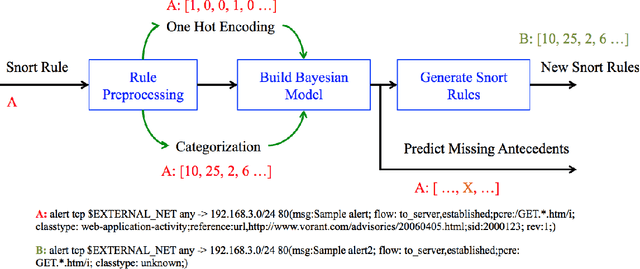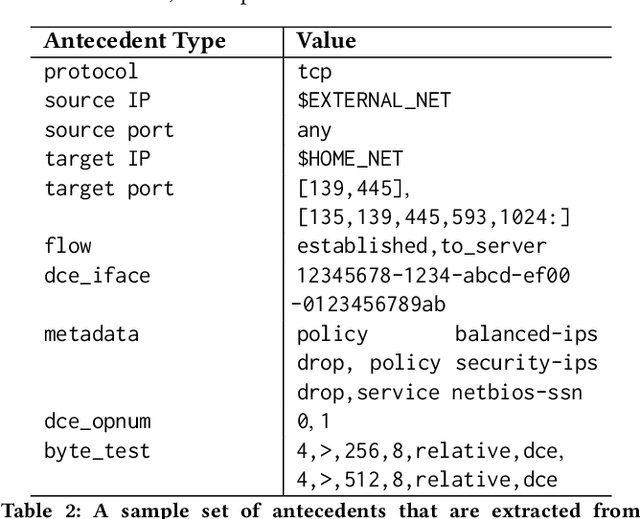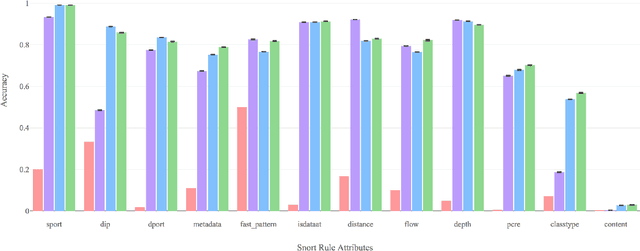Akshay Peshave
Extending Signature-based Intrusion Detection Systems WithBayesian Abductive Reasoning
Mar 28, 2019



Abstract:Evolving cybersecurity threats are a persistent challenge for systemadministrators and security experts as new malwares are continu-ally released. Attackers may look for vulnerabilities in commercialproducts or execute sophisticated reconnaissance campaigns tounderstand a targets network and gather information on securityproducts like firewalls and intrusion detection / prevention systems(network or host-based). Many new attacks tend to be modificationsof existing ones. In such a scenario, rule-based systems fail to detectthe attack, even though there are minor differences in conditions /attributes between rules to identify the new and existing attack. Todetect these differences the IDS must be able to isolate the subset ofconditions that are true and predict the likely conditions (differentfrom the original) that must be observed. In this paper, we proposeaprobabilistic abductive reasoningapproach that augments an exist-ing rule-based IDS (snort [29]) to detect these evolved attacks by (a)Predicting rule conditions that are likely to occur (based on existingrules) and (b) able to generate new snort rules when provided withseed rule (i.e. a starting rule) to reduce the burden on experts toconstantly update them. We demonstrate the effectiveness of theapproach by generating new rules from the snort 2012 rules set andtesting it on the MACCDC 2012 dataset [6].
 Add to Chrome
Add to Chrome Add to Firefox
Add to Firefox Add to Edge
Add to Edge